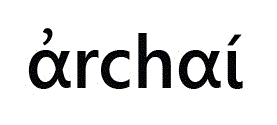Abstract:
In order to confirm that the sophist is a manufacturer of illusions, Plato argues (Sph.262d8) that it is necessary to refute Parmenides’s thesis which states that there is only - as Plato interprets it - the absolute being. Most likely an echo of this thesis is found in Antisthenes, whom Plato seems to allude to in the Sophist, for whom “what is, is true”. This conception of truth is known as “ante-predicative” or ontological, and, according to Heidegger, would be original. It is not the case. From Homer to Parmenides, truth (or falsehood) was always attributed to a speech or thought, never to a “being”. The “ante-predicative” conception of truth was a creation of philosophy, which probably began with Parmenides and continued with Antisthenes. When Plato refutes it, in the second part of the Sophist, only returns to the past, because he makes speech the “place” of truth.
Keywords:
Parmenides; Plato;
Sophist
; Antisthenes; ante-predicative
